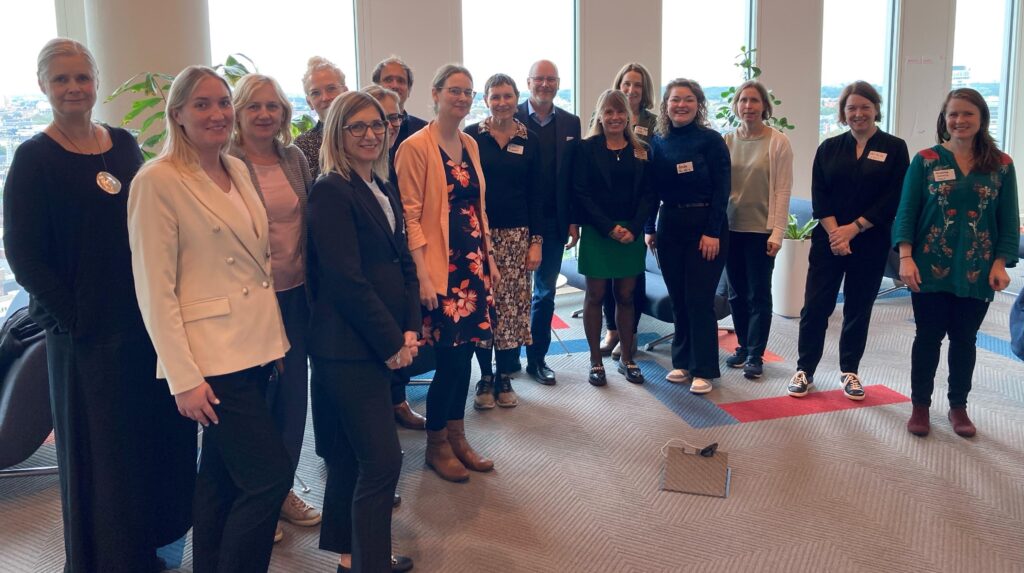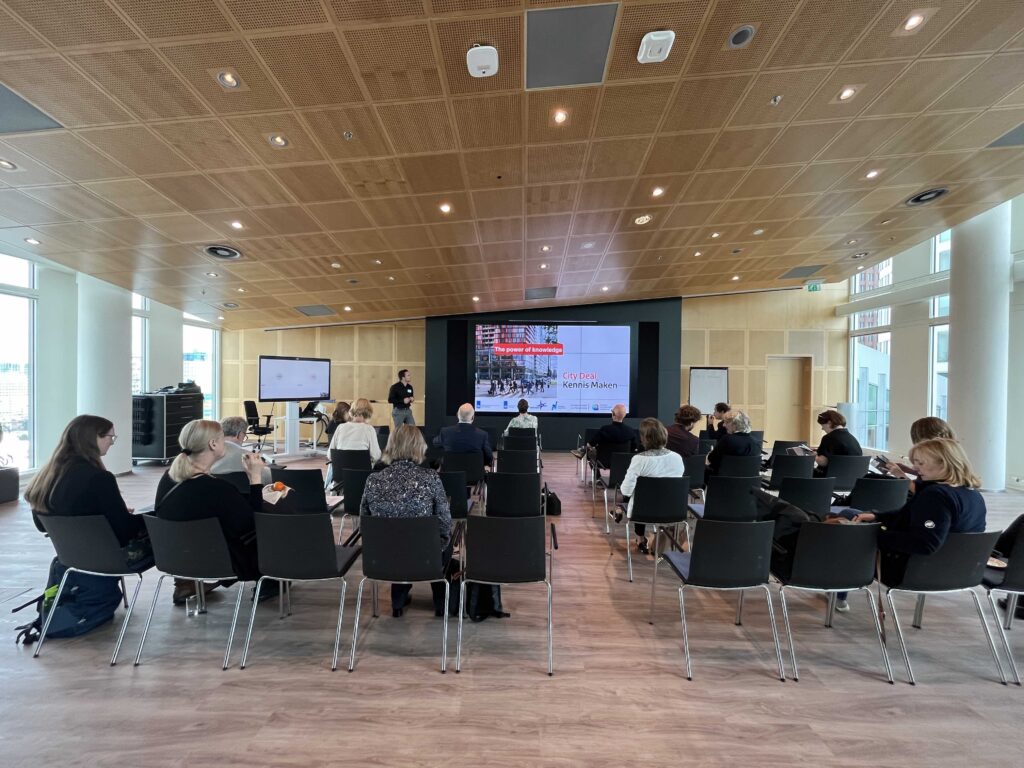Public & Science Sweden is contributing as a national expert in the European Commission’s Mutual Learning Exercise (MLE) focusing on Public Engagement in Research & Innovation (R&I). National representatives and experts from the eight participating countries gathered in The Hague in September to find out more about existing frameworks for public engagement, share experiences and to discuss the need for national policies.

The MLEs are part of the Horizon Europe Framework Programme and aim to foster collaboration, knowledge exchange and policy development among European countries. The MLE on Public Engagement aims to develop European guidelines and policy recommendations, strengthen the European public engagement community and provide insights for the future EU Research Framework Programme. It will also help equip European and national representatives and policymakers with the skills and tools they need to effectively level-up public engagement in R&I policy. The two first meetings of the MLE focused on taking stock of the existing public engagement landscape and mapping successful initiatives and challenges met in the participating countries and across the EU. The reports from these meetings can be found here.
Famework conditions for Public Engagement in the EU
The theme for the third meeting in The Hague was framework conditions for Public Engagement in the EU and was hosted by the Dutch Research Council – NWO. The Netherlands have been a forerunner in the EU for the last decade when it comes to policies and strategies for Open Science and involvement of the public in the research process. The Open Science NL initiative was set up to advance and accelerate Open Science in the Netherlands with the goal of making it the norm. It also contains funding schemes for both science communication and citizen science. The current Dutch research agenda and funding programme was developed through public consultations via the Internet. The 12,000 research questions received were condensed into 140 cluster questions and down to 25 research focus areas which lay the foundation for the NWO funding programmes.
Another inspiring initiative from the Netherlands is the recently started independent NEWS – National Center for Science & Society with a mission to improve the connection between science and society by doing better science communication. The organisation receives funding of 1 million euros/year for 10 years from the Dutch government. Its main activities will be sharing knowledge and experience, to foster connections and to improve the system.

To spur interest in science-society exchange and to foster public engagement within academia the Erasmus University Rotterdam has set up a recognition and rewards framework. Their “Impact through Recognition and rewards EUR Framework” emphasises that public engagement needs to be integrated in career paths and that it needs to be recognized, appreciated and rewarded.
Another inspiring example is the newly set up SciCom Incubator at the Maastricht University which is a year-long masterclass to which researchers can apply to learn more about public engagement trade and how to apply it in their project ideas. The CityDeal/KennisMaken initiative was set up in 2017 to connect and enhance the exchange between higher education with society and engagement with the citizens. Currently 20 cities and 13 universities in the Netherlands are connected to the CityDeal with the aim of connecting local government with the universities to create a rich learning environment for students and thus help to find solutions to societal challenges together with citizens.
We have a lot to learn from our EU colleagues when it comes to involve society in research policy agenda, rewarding researchers and to recognise the impact that public engagement has on society
The enabling factors to foster public engagement in society are institutional and infrastructural support provided by public authorities, competence building for all actors in the R&I ecosystem, incentives and rewards schemes and assessment of initiatives and practices. During the MLE meeting the participants discussed and exchanged knowledge and best practices from national policy initiatives and on existing public engagement activities. Interestingly, it was noted that half of the participating countries; Germany, Ireland, Lithuania and the Netherlands, have dedicated funding mechanisms, policies and or strategic documents in place describing their public engagement frameworks. Reflecting on the two days, Maria Hagardt, International Relations Coordinator at Public & Science commented “We have a lot to learn from our EU colleagues when it comes to involve society in research policy agenda, rewarding researchers and to recognise the impact that public engagement has on society.”
The last meeting of the MLE in November will focus on public engagement in the European Research Area, ERA and will identify key components and discuss how the framework conditions discussed in The Hague can be connected across national and international levels to create synergies and a strong network of public engagement actors.
More information about the MLE on Public Engagement reports from each meeting and fact sheets can be found at the European Commission’s Policy Support Facility website.
Public & Science Sweden is participating in the MLE as a national expert, read more about our role.
